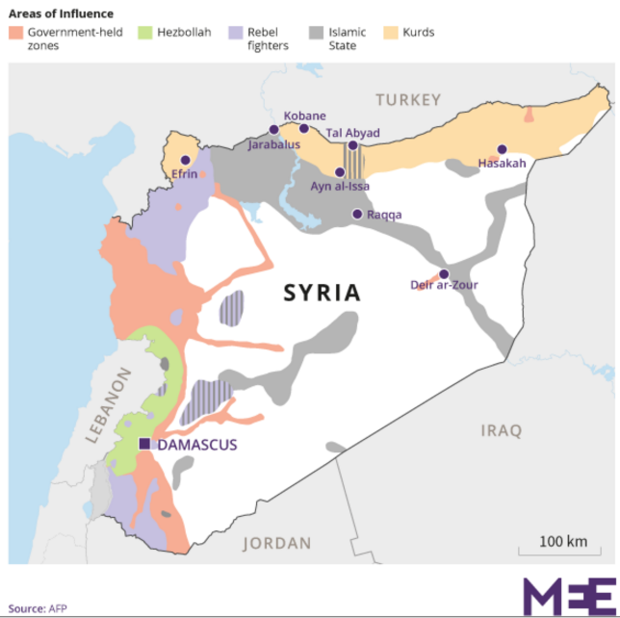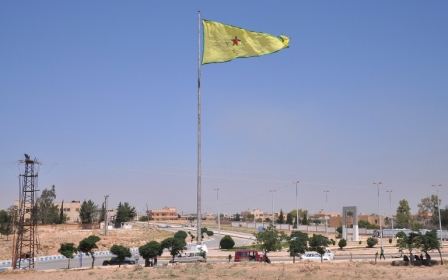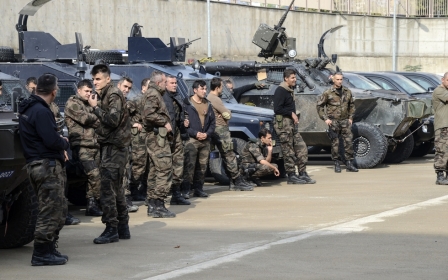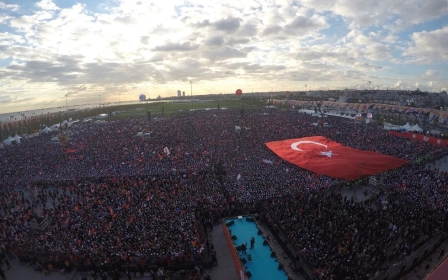Turkish PM confirms attacks on US-backed Kurdish forces
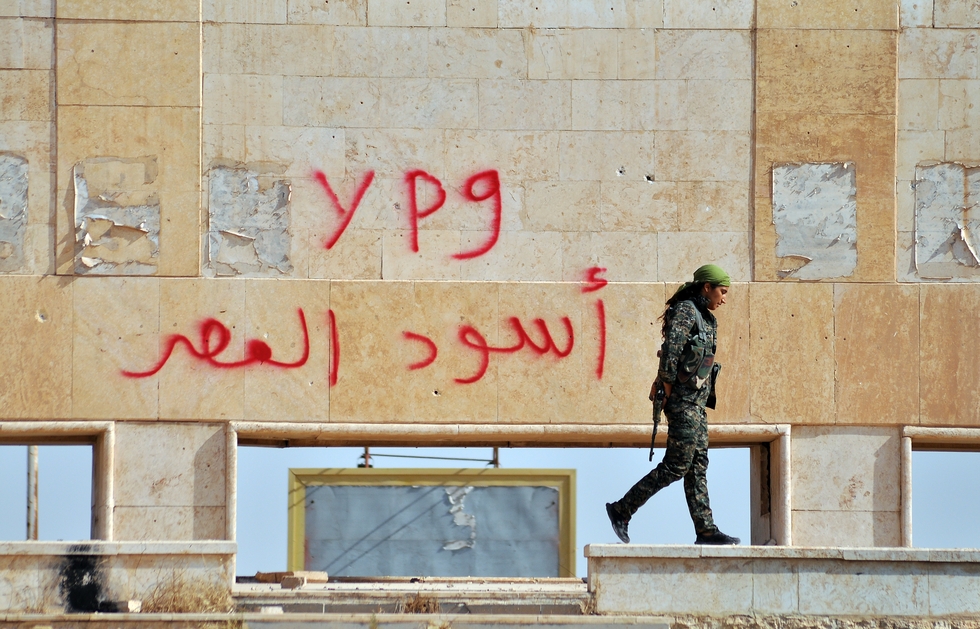
Turkey's military has twice attacked US-allied Kurdish opposition fighters in northern Syria, Ahmet Davutoglu, the country's prime minister has confirmed for the first time.
In an interview with A Haber television late on Monday, Davutoglu said Turkey had warned members of the Democratic Union Party (PYD) not to cross to the west of the Euphrates river and if they did, Turkey would attack.
"We struck twice," he said, without giving any further details.
Turkey regards the PYD, and its military wing the People's Protection Units (YPG) as the Syrian offshoot of the outlawed Kurdistan Workers' Party (PKK) which has fought an insurgency in the Kurdish-majority southeast of Turkey since 1984.
But the YPG, which controls a large area of northern Syria bordering Turkey, is considered a key ally of the US-led coalition fighting the Islamic State (IS) group in Syria and Iraq.
Davutoglu's comments came after Syrian Kurdish fighters accused the Turkish military of attacking their positions in northern Syria from where they expelled IS after fierce clashes in June.
In a statement released on Sunday, the YPG stated that Turkish forces had attacked its positions at the border of Tal Abyad (known to Kurds as Gire Spi) on Saturday evening and on Sunday morning.
The YPG previously accused Turkish tanks of shelling the Kurdish-held village of Zur Maghar in Aleppo in July, a claim denied by the Turkish government.
“Instead of targeting ISIS [IS] terrorist-occupied positions, Turkish forces attack our defenders’ positions,” the YPG said at the time. “We urge [the] Turkish leadership to halt this aggression and to follow international guidelines. We are telling the Turkish army to stop shooting at our fighters and their positions.”
The Turkish government has repeatedly stated that the YPG and PYD are "terrorists". It has also said that it makes no differentiation between the group and the outlawed Kurdistan Workers Party (PKK), but previously the Turkish military had officially refrained from attacks on YPG targets, instead focusing its recent anti-PKK air campaign exclusively against targets in northern Iraq.
'Bulwark' against Islamic State
The YPG has received substantial support from the US, which sees them as a major bulwark against IS.
Planes from the US-led anti-IS coalition have supported YPG fighters on the ground and helped them take large swathes of northern Syria from IS.
Working in tandem with Free Syrian Army (FSA) forces in northern Syria, the YPG has reportedly been preparing for a major offensive against the IS stronghold of Raqqa, and has called for greater resources from the US.
“We haven’t received weapons yet,” said YPG fighter Heval Serfiraz, in the YPG headquarters base close to the town of Ayn al Issa, speaking to MEE. "The last time the US supported us with weapons was one year ago in Kobani, but they have promised them."
“We don’t have heavy weapons like the Islamic State. We just have Kalashnikovs and Doskhas. IS weapons are much better than the YPG,” he said.
“We need anti-tank weapons and heavy weapons,” the YPG fighter, who originates from Turkey, said.
Turkey has reportedly been critical of US support for YPG fighters in Syria, fearing the potential for an autonomous Kurdish entity in northern Syria, which could spur on Kurdish nationalists in Turkey.
Turkey reacted angrily to news that a US weapons drop in northern Syria on 11 October had been intended for the YPG with Davutoglu accusing Washington of double standards and not respecting Turkey's national security.
“As the ally countries would not tolerate excuses for arms support to al-Qaeda-affiliated groups, Turkey cannot excuse any armed support to groups linked to the PKK. It certainly cannot allow any tolerance in this matter,” Davutoglu said.
The Kurds in Syria last week said they had incorporated Tal Abyad into their "autonomous administration" in the north of the country.
Ankara has warned Syrian Kurds to stay away from any attempts to create a "de facto situation" in Syria.
New MEE newsletter: Jerusalem Dispatch
Sign up to get the latest insights and analysis on Israel-Palestine, alongside Turkey Unpacked and other MEE newsletters
Middle East Eye delivers independent and unrivalled coverage and analysis of the Middle East, North Africa and beyond. To learn more about republishing this content and the associated fees, please fill out this form. More about MEE can be found here.


